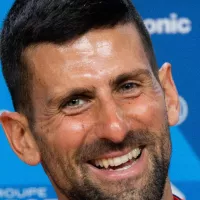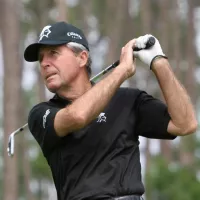Serbia is a landlocked country in Southeast and Central Europe, situated in the Balkans. It shares borders with Hungary, Romania, Bulgaria, North Macedonia, Croatia, Bosnia and Herzegovina, and Montenegro, and claims a border with Albania through Kosovo. Its capital and largest city is Belgrade. The country has a population of approximately 6.6 million people, excluding Kosovo.
1903: House of Karađorđević assumes power
In 1903, the House of Karađorđević assumed power following the May Overthrow.
1904: Politika Founded
In 1904, Politika, the oldest newspaper in the Balkans, was founded.
June 1914: Assassination of Archduke Franz Ferdinand
On June 28, 1914, Archduke Franz Ferdinand of Austria was assassinated in Sarajevo by Gavrilo Princip, leading to Austria-Hungary declaring war on Serbia.
1915: Overpowered by the Central Powers
Despite initial success, Serbia was eventually overpowered by the Central Powers in 1915 and Austro-Hungarian occupation of Serbia followed.
July 1917: Signing of the Corfu Declaration
The Corfu Declaration was signed on 20 July 1917 on Corfu, a formal agreement between the government-in-exile of the Kingdom of Serbia and the Yugoslav Committee that pledged to unify Kingdom of Serbia and Kingdom of Montenegro with Austria-Hungary's South Slav autonomous crown lands in a post-war Yugoslav state.
September 1918: Serb army breaks through enemy lines
On 15 September 1918, the remains of the Serb army returned east and led a final breakthrough through enemy lines, liberating Serbia and defeating Bulgaria and Austria-Hungary.
November 1918: Allied victory in the Balkans
In November 1918, Serbia contributed significantly to the Allied victory in the Balkans, especially by helping France force Bulgaria's capitulation.
November 1918: Syrmia unites with Serbia
On 24 November 1918, the territory of Syrmia united with Serbia. The Great People's Assembly of Serbs, Bunjevci and other Slavs in Banat, Bačka and Baranja declared the unification of these regions with Serbia on 25 November 1918.
December 1918: Proclamation of the Kingdom of the Serbs, Croats, and Slovenes
On 1 December 1918, Prince Regent Alexander Karađorđević proclaimed the Kingdom of the Serbs, Croats, and Slovenes, under King Peter I of Serbia, in Belgrade.
1918: Renamed to the Kingdom of Serbia
From 1882 to 1918, Serbia was renamed to the Kingdom of Serbia.
1918: Kingdom of Serbia unites with Vojvodina and joins Yugoslavia
In 1918, following World War I, the Kingdom of Serbia united with the former Habsburg crownland of Vojvodina. Later in 1918, Serbia joined with other South Slavic nations in the foundation of Yugoslavia.
August 1921: Alexander succeeds King Peter
In August 1921, King Peter was succeeded by his son, Alexander.
1929: Establishment of dictatorship
King Alexander established a dictatorship in 1929 with the aim of establishing the Yugoslav ideology and single Yugoslav nation, changed the name of the country to Yugoslavia.
1934: Assassination of Alexander
In 1934, Alexander was assassinated in Marseille, succeeded by his son Peter II.
August 1939: Cvetković–Maček Agreement
In August 1939 the Cvetković–Maček Agreement established an autonomous Banate of Croatia as a solution to Croatian concerns.
1941: Axis powers invade Yugoslavia
In 1941, the Axis powers invaded Yugoslavia, dividing the territory of modern Serbia.
1941: Republic of Užice Established
In the autumn of 1941, the Republic of Užice was a short-lived liberated territory established by the Partisans in the west of occupied Serbia, functioning as a military mini-state.
1941: Draginac and Loznica massacre
The Draginac and Loznica massacre of 2,950 villagers in Western Serbia in 1941 was the first large execution of civilians in occupied Serbia by Germans, with Kragujevac massacre and Novi Sad Raid of Jews and Serbs by Hungarian fascists being the most notorious. In 1941, around 16,000 Serbian Jews were murdered in the area during The Holocaust in Serbia.
1944: Belgrade Offensive
By late 1944, the Belgrade Offensive swung in favour of the partisans in the civil war; the partisans subsequently gained control of Yugoslavia.
1944: Communist Partisans victory
In 1944, The victory of the Communist Partisans resulted in the abolition of the monarchy and a subsequent constitutional referendum. It is claimed between 60,000 and 70,000 people died in Serbia during the 1944–45 communist purge.
1945: Renamed to the People's Republic of Serbia
From 1945 to 1963, the official name for Serbia was the People's Republic of Serbia.
1950: Start of Chess Excellence
From 1950, Serbian chess players began a period of excellence.
1954: Awarding of NIN Prize
The NIN Prize has been awarded every January since 1954 for the best newly published novel in Serbian.
September 1961: Non-Aligned Movement Summit in Belgrade
In September 1961, Belgrade, the capital of FPR Yugoslavia and PR Serbia, hosted the first Non-Aligned Movement Summit.
1961: Ivo Andrić Wins Nobel Prize
Ivo Andrić, author of "The Bridge on the Drina", won the Nobel Prize in Literature in 1961.
1961: Air temperature average
The average annual air temperature for the period 1961–1990 for the area with an elevation of up to 300 m (984 ft) is 10.9 °C (51.6 °F).
1963: Renamed to the Socialist Republic of Serbia
From 1963 to 1990, the official name for Serbia was the Socialist Republic of Serbia.
1965: Partizan Reaches European Cup Final
In 1965-66 Partizan reached the European Cup final.
1967: Belgrade International Theatre Festival Founded
The Belgrade International Theatre Festival – BITEF, was founded in 1967.
1974: KK Crvena zvezda Wins FIBA Saporta Cup
In 1974, KK Crvena zvezda won the FIBA Saporta Cup.
October 1977: OSCE gathering in Belgrade
From October 1977 to March 1978, Belgrade hosted the first major gathering of the Organisation for Security and Co-operation in Europe (OSCE) with the aim of implementing the Helsinki Accords.
March 1978: OSCE gathering in Belgrade
From October 1977 to March 1978, Belgrade hosted the first major gathering of the Organisation for Security and Co-operation in Europe (OSCE) with the aim of implementing the Helsinki Accords.
1979: Steve Tesich Wins Academy Award
Serbian-American screenwriter Steve Tesich won the Academy Award for Best Original Screenplay in 1979.
1980: End of Chess Excellence
By 1980, Serbian chess players had won 15 Olympic medals.
1980: Milena Dravić Wins Best Actress Award at Cannes
In 1980, Milena Dravić won the Best Actress Award at the Cannes Film Festival.
January 1985: Lowest Recorded Temperature
In January 1985, the lowest recorded temperature in Serbia was −39.5 °C (−39.1 °F) in Karajukića Bunari in Pešter.
1985: Emir Kusturica Wins Palme d'Or for 'When Father Was Away on Business'
In 1985, Emir Kusturica won a Palme d'Or for Best Feature Film at the Cannes Film Festival for 'When Father Was Away on Business'.
1989: Milošević rises to power
In 1989, Slobodan Milošević rose to power in Serbia, promising a reduction of powers for the autonomous provinces of Kosovo and Vojvodina.
1989: Reference point for industrial output
In 1989, the industrial output was double of what it was expected to be in 2013.
1990: Introduction of multi-party democracy
In 1990, multi-party democracy was introduced in Serbia, officially dismantling the one-party system, although Milošević retained significant political influence.
1990: Renamed to the Republic of Serbia
Since 1990, the official name of the country has been the Republic of Serbia.
1990: GDP Decrease
The UN imposed sanctions against Serbia and Montenegro which led to the collapse of the economy (GDP decreased from $24 billion in 1990 to under $10 billion in 1993).
1990: Air temperature average
The average annual air temperature for the period 1961–1990 for the area with an elevation of up to 300 m (984 ft) is 10.9 °C (51.6 °F).
1991: Declarations of independence
During 1991 and 1992, Slovenia, Croatia, Bosnia and Herzegovina, and Macedonia declared independence.
1991: Yugoslav Wars Erupt
Fueled by ethnic tensions, the Yugoslav Wars (1991–2001) erupted, with the most severe conflicts taking place in Croatia and Bosnia.
1992: KK Partizan Wins EuroLeague
In 1992, KK Partizan won the EuroLeague.
1992: Formation of the Federal Republic of Yugoslavia
In 1992, Serbia and Montenegro remained together as the Federal Republic of Yugoslavia (FRY).
1993: GDP Decrease
The UN imposed sanctions against Serbia and Montenegro which led to the collapse of the economy (GDP decreased from $24 billion in 1990 to under $10 billion in 1993).
1995: Emir Kusturica Wins Palme d'Or for 'Underground'
Emir Kusturica won another Palme d'Or for Best Feature Film at the Cannes Film Festival for 'Underground' in 1995.
1996: Protests Against the Government
In 1996, large protests erupted in Serbia against the government after the ruling Socialist Party refused to accept its defeat in municipal elections.
1998: Kosovo War and NATO Intervention
In 1998, continued clashes between the Albanian guerilla Kosovo Liberation Army and Yugoslav security forces led to the Kosovo War (1998–99), in which NATO intervened, leading to the withdrawal of Serbian forces and the establishment of UN administration in the province.
1999: NATO Bombing and Environmental Damage
In 1999, the NATO bombing caused serious damage to the environment in Serbia, with the release of several thousand tonnes of toxic chemicals into the soil and water basins.
1999: NATO Bombing of Yugoslavia
Serbia's popular rejection of joining NATO is largely a legacy of the NATO bombing of Yugoslavia in 1999.
September 2000: Overthrow of Milošević
In September 2000, following accusations of electoral fraud in the presidential elections, a campaign of civil resistance culminated on 5 October with half a million people congregating in Belgrade, compelling Milošević to concede defeat, ending Yugoslavia's international isolation.
2000: Men's National Volleyball Team Wins Olympic Gold Medal
In 2000, Serbia's men's national volleyball team won the Olympic gold medal.
2000: Foreign Direct Investment Since 2000
Since 2000, Serbia has attracted over $40 billion in foreign direct investment (FDI).
2001: Yugoslav Wars End
Fueled by ethnic tensions, the Yugoslav Wars (1991–2001) erupted, with the most severe conflicts taking place in Croatia and Bosnia.
2003: Assassination of Prime Minister Zoran Đinđić
In 2003, Prime Minister Zoran Đinđić was assassinated as a result of a plot originating from organised crime and former security officials, creating political tension in Serbia.
2003: Renaming to Serbia and Montenegro and EU Negotiations
In 2003, the Federal Republic of Yugoslavia was renamed Serbia and Montenegro. Also in 2003, the EU opened negotiations with the country for the Stabilisation and Association Agreement.
2004: Unrest in Kosovo
In 2004, unrest in Kosovo resulted in 19 deaths and the destruction or damage of several Serbian Orthodox churches and monasteries.
2004: Željko Joksimović at Eurovision
Željko Joksimović won second place at the 2004 Eurovision Song Contest.
May 2006: Montenegro Independence Referendum
In May 2006, Montenegro held a referendum, with 55.4% of voters favouring independence.
June 2006: Serbia's Declaration of Independence
On June 5, 2006, Serbia declared its independence, marking its re-emergence as an independent state, and declared itself the legal successor to the former state union.
2006: Adoption of the current constitution
In 2006, the current constitution of Serbia was adopted in the aftermath of the Montenegro independence referendum.
2006: Dissolution of the union with Montenegro
In 2006, the union between Serbia and Montenegro was peacefully dissolved, restoring Serbia's independence as a sovereign state in 2006.
July 2007: Highest Recorded Temperature
In July 2007, the highest temperature recorded in Serbia was 44.9 °C (112.8 °F), in Smederevska Palanka.
December 2007: Military Neutrality Proclaimed
In December 2007, Serbia's parliament formally proclaimed military neutrality, making joining any military alliance contingent on a popular referendum.
December 2007: National Assembly Resolution on Kosovo
On 26 December 2007, the National Assembly of Serbia stated that both Kosovo's declaration of independence and recognition thereof by any state would be a gross violation of international law.
2007: Marija Šerifović Wins Eurovision
Marija Šerifović won the 2007 Eurovision Song Contest with the song "Molitva".
February 2008: Kosovo's Declaration of Independence
In February 2008, Kosovo declared its independence from Serbia. The government of Serbia considers this declaration illegal and illegitimate.
2008: Kosovo declares independence
In 2008, representatives of the Assembly of Kosovo unilaterally declared independence, leading to mixed international responses while Serbia continues to claim it as part of its sovereign territory in 2008.
2008: Acquisition of NIS by Gazprom Neft
In 2008, the national petrol company, Naftna Industrija Srbije (NIS), was acquired by Gazprom Neft.
December 2009: Application for EU Membership
On December 22, 2009, Serbia officially applied for membership in the European Union.
2009: Serbia Enters Recession
Serbia entered a recession in 2009 with a negative growth of -3%.
2010: Men's National Tennis Team Wins Davis Cup
In 2010, the Serbian men's national tennis team won the Davis Cup.
2010: Book Publishing Statistics
In 2010, there were 10,989 books and brochures published in Serbia.
December 2011: Delay in receiving candidate status
In December 2011, the process for Serbia to receive candidate status for membership in the European Union faced a delay.
2011: Education Statistics
According to the 2011 census, literacy in Serbia stood at 98% of the population, while computer literacy was at 49%.
2011: Abolition of Conscription
Conscription was abolished in the Serbian Armed Forces in 2011 as part of a period of downsizing, restructuring and professionalisation.
2011: Religious Demographics in Serbia
In 2011, Roman Catholics numbered 356,957 in Serbia, representing approximately 6% of the population. The Greek Catholic Church had around 25,000 adherents.
2011: Jewish and Atheist Populations in Serbia
In 2011, there were 578 Jews in Serbia. Atheists numbered 80,053, representing 1.1% of the population, with an additional 4,070 declaring themselves as agnostics.
2011: Abolition of Mandatory Military Service
In 2024 the Serbian president approved the reintroduction of mandatory military service, which was abolished in 2011.
March 2012: Serbia Receives EU Candidate Status
In March 2012, Serbia received candidate status for membership in the European Union.
March 2012: Received Candidate Status for EU Membership
On March 1, 2012, Serbia received a full candidate status for membership in the European Union.
2012: Rise of Aleksandar Vučić and the Serbian Progressive Party
In 2012, Aleksandar Vučić and his Serbian Progressive Party came to power.
2012: Natural Gas Production in 2012
In 2012, domestic production of natural gas in Serbia totaled 491 million cubic meters.
2012: Economic Recession in Serbia
Serbia experienced a recession in 2012 with a negative growth of -1%.
June 2013: EU Commences Negotiations with Serbia
In June 2013, following positive recommendations from the European Commission and European Council, negotiations to join the EU commenced for Serbia.
2013: Decline in Industrial Output
In 2013, Serbia's industrial output was expected to be only half of what it was in 1989.
2013: Belgrade Book Fair Attendance
In 2013, the Belgrade Book Fair, the industry's centerpiece event, saw 158,128 visitors.
2013: Observer Member of CSTO
Serbia became an observer member of the Collective Security Treaty Organisation (CSTO) in 2013.
2013: Exit Festival Visitors
The Exit festival in Novi Sad had 200,000 visitors in 2013.
January 2014: Commencement of EU Accession Negotiations
In January 2014, negotiations for Serbia to join the EU officially commenced.
January 2014: Started Accession Talks
On January 21, 2014, Serbia started accession talks to become a member of the European Union.
May 2014: Disastrous Floods
In May 2014, Serbia experienced disastrous floods that resulted in 57 deaths and over 1.5 billion euros in damage.
2014: Alphabet Preference Survey
A survey from 2014 indicated that 47% of Serbians prefer the Latin alphabet, 36% favor the Cyrillic alphabet, and 17% have no preference.
2014: Economic Recession in Serbia
Serbia experienced a recession in 2014 with a negative growth of -1.8%.
2014: Negotiations for EU accession begin
Since 2014, Serbia has been negotiating its EU accession, with the possibility of joining the European Union.
2014: Sanctions Against Russia
Since the imposition of sanctions against Russia in 2014, Russia has sought to solidify its relations with Serbia, described as a centuries-old religious, ethnic and political alliance.
2015: Digital Television Transition Completed
In 2015, Serbia completed its digital television transition using the DVB-T2 standard for signal transmission.
2015: Electricity Production and Consumption
In 2015, electricity production in Serbia was 36.5 billion kilowatt-hours (KWh), while consumption was 35.5 billion kilowatt-hours (KWh).
2016: Agricultural Exports in 2016
In 2016, Serbia exported agricultural and food products worth $3.2 billion, with an export-import ratio of 178%.
2016: Men's National Volleyball Team Wins FIVB Volleyball World League
In 2016, Serbia's men's national volleyball team won the FIVB Volleyball World League.
September 2017: Free Economic Zones
As of September 2017, Serbia had 14 free economic zones.
2017: Most Visited Web-Portals
As of 2017, the most visited web-portals in Serbia are the online editions of Blic and Kurir, the B92 news web-portal, and KupujemProdajem classifieds.
2017: Aleksandar Vučić becomes President
Following the 2017 presidential election, Aleksandar Vučić of the Serbian Progressive Party became the current president.
2017: Scientific Research Spending
In 2017, Serbia spent 0.9% of its GDP on scientific research, slightly below the European average.
2017: Exit Wins Best Major Festival Award
The Exit festival in Novi Sad won the Best Major Festival award at the European Festivals Awards for 2017.
2018: Television Viewing Habits
According to EBU research in 2018, Serbs watch an average of five and a half hours of television per day.
2018: EU Accession Possible
As of 2018, the European Commission considered Serbia's accession to the EU possible by 2025.
2018: Passenger Car Registration
As of 2018, there were 1,999,771 registered passenger cars in Serbia, or 1 car per 3.5 inhabitants.
2018: University Attendance
During the 2018 academic year, 210,480 students attended 19 universities in Serbia, with 181,310 at public universities and 29,170 at private universities.
2018: Steel Production in 2018
In 2018, Serbia produced nearly 2 million tonnes of raw steel, entirely from the Smederevo steel mill, which is owned by the Chinese company Hesteel. Also Serbia manufactures Tesla smartphones.
2018: Defense Exports
In 2018, Serbia's defense exports totaled around $600 million.
2018: Serbia's Exports in 2018
In 2018, Serbia's exports reached $19.2 billion.
2018: Cargo Transportation on Serbian Rivers and Canals
In 2018, more than 8 million tonnes of cargo were transported on Serbian rivers and canals. The largest river ports include Novi Sad, Belgrade, Pančevo, Smederevo, Prahovo, and Šabac.
2018: Serbia Becomes Full Member of CERN
Since 2018, Serbia is a full member of CERN. Serbia's information technology sector generated over $1.2 billion in exports.
May 2019: Average Monthly Net Salary
In May 2019, the average monthly net salary in Serbia was 47,575 dinars or $525.
2019: Serbian Defence Budget
As of 2019, the Serbian defence budget amounted to $804 million.
2019: Film Industry Statistics
As of 2019, there were 26 feature films produced in Serbia, of which 14 were domestic films. 20% of total tickets sold were for domestic films.
2019: University Attendance
During the 2018/2019 academic year, 210,480 students attended 19 universities in Serbia (181,310 at public universities and some 29,170 at private universities) while 47,169 attended 81 "higher schools".
2019: Forest Landscape Integrity Index
In 2019, Serbia had a Forest Landscape Integrity Index mean score of 5.29/10, ranking it 105th globally out of 172 countries.
2019: Tourism Statistics in Serbia
In 2019, Serbia recorded over 3.6 million tourists in accommodations, half of whom were foreign. Foreign exchange earnings from tourism were estimated at $1.5 billion.
March 2020: COVID-19 Pandemic and State of Emergency
In March 2020, after the COVID-19 pandemic spread to Serbia, a state of emergency was declared, and a curfew was introduced for the first time in Serbia since World War II.
2020: Parliamentary election
Following the 2020 parliamentary election, the largest political parties in the National Assembly are the populist Serbian Progressive Party and Socialist Party of Serbia.
2020: Men's National Tennis Team Wins ATP Cup
In 2020, the Serbian men's national tennis team won the ATP Cup.
2021: Unemployment Rate
As of 2021, the unemployment rate in Serbia was 11%.
2021: Sljivovica Added to UNESCO List
In 2021, Serbia's sljivovica was added to the United Nations Intangible Cultural Heritage List.
2021: Opening of Balkan Stream Gas Pipeline
In 2021, the Balkan Stream gas pipeline opened through Serbia.
January 2022: Serbian Constitutional Referendum
On January 16, 2022, a Serbian constitutional referendum took place where citizens chose to amend the Constitution concerning the judiciary.
April 2022: Re-election of President Aleksandar Vučić
In April 2022, President Aleksandar Vučić was re-elected.
2022: 2022 Census Results
As of the 2022 census, Serbia (excluding Kosovo) has a total population of 6,647,003 with a population density of 85.8 inhabitants per square kilometer. Kosovo held its own census that numbered their total population at 1,586,659.
2022: Passenger Traffic at Airports
In 2022, Serbia's airports served over 6 million passengers, with Belgrade Nikola Tesla Airport handling the bulk of it. Air Serbia carried 2.75 million passengers in 2022.
2022: Ethnic Groups in Serbia
In 2022, Serbs make up 81% of the total population with 5,360,239 people. Hungarians are the largest ethnic minority with a population of 184,442. The official Romani population was 131,936 according to the 2022 census.
2022: Opening of Belgrade-Novi Sad High-Speed Rail Line
In 2022, approximately 75 km of new high-speed rail line between Belgrade and Novi Sad was opened.
2022: Start of Russian Emigration
In 2022, the Russian invasion of Ukraine led to more than 300,000 Russians emigrating to Serbia by January 2024.
December 2023: Snap Parliamentary Election and Protests
In December 2023, President Vučić won a snap parliamentary election, which resulted in protests by opposition supporters alleging electoral fraud.
2023: Nikola Jokić Named NBA Finals MVP
In 2023, Nikola Jokić was named the NBA Finals MVP.
2023: Serbian Arms Exports
In 2023, Serbia's arms exports surpassed $1.6 billion, ranking 25th worldwide.
2023: Men's Team Wins European Team Competition
In 2023, the Serbian men's chess team won the European Team Competition.
January 2024: Russian Emigration to Serbia
As of January 2024, more than 300,000 Russians had emigrated to Serbia since the start of the 2022 Russian invasion of Ukraine.
2024: Serbian Nominal GDP Estimate
According to the International Monetary Fund, in 2024 Serbian nominal GDP is officially estimated at $81.873 billion or $12,385 per capita.
2024: Serbia's World Happiness Rank
According to the World Happiness Report 2024, Serbia is ranked 37th out of 140 countries.
2024: Commencement of High-Speed Rail Construction to Niš
Construction work for a 212 km long extension of the high-speed rail line to the south, to the city of Niš, is set to commence in 2024.
2024: President Approves Reintroduction of Mandatory Military Service
In 2024 the Serbian president approved the reintroduction of mandatory military service, which was abolished in 2011.
2024: Novak Djokovic Achieves Career Super Slam
In 2024, Novak Djokovic achieved a Career Super Slam with his Olympic gold.
2024: Press Freedom Index Ranking
In 2024, Serbia was ranked 98th out of 180 countries in the Press Freedom Index report compiled by Reporters Without Borders.
2024: Olympic Bronze Medal in Basketball
In 2024, the Serbian men's national basketball team won a bronze medal at the Olympics.
2024: University of Belgrade Shanghai Ranking
In 2024, the University of Belgrade was placed in the 401–500 bracket on the Shanghai Ranking of World Universities.
2024: Anti-corruption protests
In 2024–2025, large-scale anti-corruption protests erupted.
2024: Global Innovation Index Ranking
Serbia was ranked 52nd in the Global Innovation Index in 2024.
2025: EU Accession Possible
As of 2018, the European Commission considered Serbia's accession to the EU possible by 2025.
2025: Proposed Reintroduction of Mandatory Military Service
In 2024 the Serbian president approved the reintroduction of mandatory military service, which was abolished in 2011. If the Government adopts this decision, military service will last 75 days, starting with 2025.
2025: Anti-corruption protests
In 2024–2025, large-scale anti-corruption protests erupted.
2025: Planned opening of Novi Sad-Subotica High-Speed Rail Line
The planned opening of an additional 108 km high-speed rail line from Novi Sad to Subotica and the border with Hungary is set to occur in 2025.
2027: Serbia to Host Expo 2027
In 2027, Serbia is chosen to host international specialised exposition Expo 2027.
2030: Possible EU accession
Serbia has been negotiating its EU accession since 2014, with the possibility of joining the European Union by 2030.
Mentioned in this timeline

Basketball is a team sport played on a rectangular court...
Ukraine is a large country in Eastern Europe second in...

Novak Djokovic a Serbian professional tennis player holds the record...

The Catholic Church the largest Christian church globally with over...

News encompasses information about current events disseminated through various media...
France officially the French Republic is primarily located in Western...
Trending

9 months ago Rey Mysterio Supports Son Dominik's Wrestling Career, Wrestlemania and Intercontinental Title Aspirations.
8 months ago Hilary Swank Inspires Chapman University's Class of 2025 Graduates with Encouraging Speech.

5 months ago Gary Player critiques Jordan Spieth's golf swing, despite calling him 'best golfer'.

2 months ago Kristi Noem's deportation flight decision faced scrutiny after judge's order, DOJ reveals call.

2 months ago Bella Hadid stuns in daring Orebella ad and sheer floral dress.

Tyrese Kendrid Maxey known as The Franchise and Mad Max is a professional basketball player currently with the Philadelphia ers...
Popular

Thomas Douglas Homan is an American law enforcement officer who...

XXXTentacion born Jahseh Dwayne Ricardo Onfroy was a controversial yet...

Martin Luther King Jr was a pivotal leader in the...

William Franklin Graham III commonly known as Franklin Graham is...

Jupiter is the fifth and largest planet from the Sun...

Instagram is a photo and video-sharing social networking service owned...
